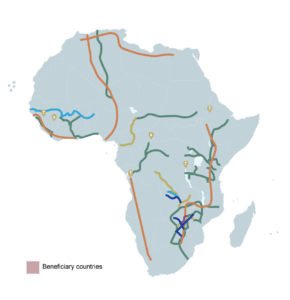By Abbas Jamie
With major infrastructure, water and telecommunications projects forging ahead, Africa’s time has arrived. As commented by George Soros, chairman of Soros Fund Management: “Africa [is] one of the few bright spots on the gloomy global economic horizon.” The world’s financial crisis, with its dramatic impact on the major developed economies, highlighted the potential among Africa’s 54 sovereign states and also what was actually happening:- In recent times, six of the ten fastest-growing economies in the world were on the African continent and the IMF predicts that leading up to 2015 seven will be African.
- Between 2007 and 2011, there was 20% compound growth in FDI projects and in eight of those ten years, Africa grew faster than East Asia (The Economist).
- It is forecasted that Africa will grow by 7% per annum over the next 20 years (Standard Chartered Bank).
- Africa has more than 650 million mobile phone users – more than North America or Europe.
- Around a tenth of Africa is covered by mobile-internet services – a higher proportion than India.
- The Southern Africa region is dominated by South Africa’s US$300 billion Infrastructure Development Programme, which includes the two largest projects under construction: Eskom’s US$20.3 billion Kusile Power Station and the US$10.8 billion Medupi Power Station. Of the active projects, 18% are involved in transportation.
- East African development was given a boost in recent years by the discovery of significant amounts of oil in Uganda and Kenya, together with major gas finds in Tanzania. While the largest projects in the region are Tanzania’s Bagamoyo Port and Kenya’s Mombasa to Malaba Standard Gauge Railway Line, there are other important road and rail transport corridor projects in progress. In total, 42% of the region’s investment is in transportation projects.
- West Africa has the second largest market on the continent in Nigeria, which looks set to overtake South Africa. Its investment in telecommunications infrastructure has provided 100% coverage, while significant railway construction is also under way. Ghana is developing its natural gas resources and aims to provide power for its neighbours. The overriding restrictions on growth in the region are the dilapidated and fragmented road and rail networks. Investment in this area represents 23% of West Africa’s infrastructure spend.







